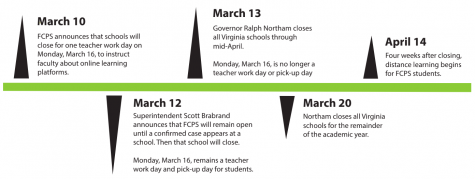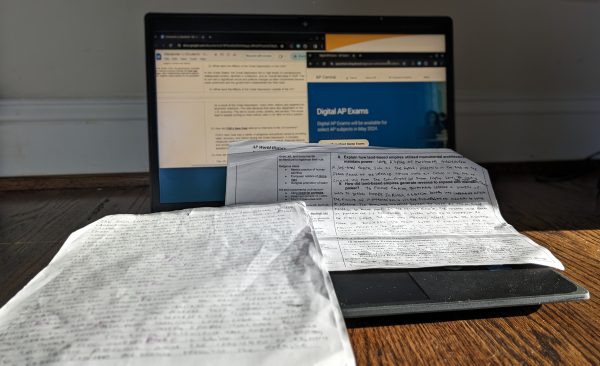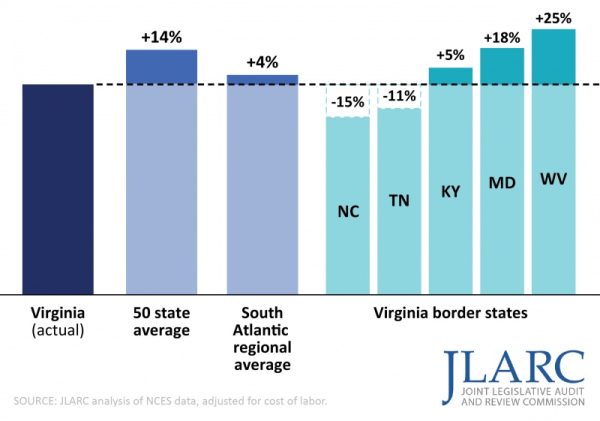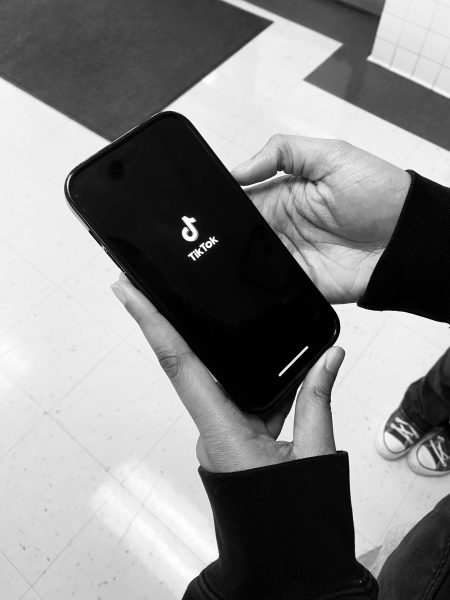FCPS fumbles with coronavirus measures
School board’s disorganized pandemic response causes confusion
April 15, 2020
A storm raged on Twitter the night of March 12 as #CloseFCPS surged in popularity once again.
Superintendent Scott Brabrand had just announced that Fairfax County Public Schools would be open for the foreseeable future––that is, until there was a positive case of coronavirus at a school. Then, only that one school would be shut down.
The county proceeded to cancel all clubs, sports and extracurricular activities occurring on and off school grounds. This would have done little to stop the spread of the virus, though, as 15 players spread across a tennis court would have much less interaction with one another than 2,000 students sharing an overcrowded school.
FCPS’s passive approach to the COVID-19 pandemic was nothing short of astonishing. The county was essentially planning to put students and staff in direct contact with the virus before taking action.
“I have family members who are immunocompromised that would be in critical condition if they got sick, which made it frustrating that FCPS at first refused to close until there was a confirmed case [of coronavirus in a school] because it would’ve meant that the virus had been there for days or even weeks before it was discovered,” junior Ryan Shue said.
Other students have situations similar to Shue’s, and Brabrand’s announcement caused widespread frustration and fear among families.
“I was outraged,” senior Summer Schwarztrauber said. “My mother has Type 1 diabetes and high blood pressure as well as kidney defections, so I felt as if FCPS was throwing me to the lions.”
FCPS should have made the call to close schools much earlier than they did.
"I WAS OUTRAGED...I FELT AS IF FCPS WAS THROWING ME TO THE LIONS.” - SUMMER SCHWARZTRAUBER
Later that same night, Brabrand amended the announcement he made earlier and canceled school on Friday, March 13. This caused more confusion for working parents of younger students, who had to scramble for child care, and for other families, who had to change their schedules to account for the last-minute closure.
FCPS was caught off-guard by the virus, despite the fact that the county was hit later than many across the country. The reasoning behind the school system’s lack of preparedness for the pandemic was because they were working off of a decade-old crisis plan from H1N1, according to school board member emeritus Ryan McElveen.
This lack of preparation from the get-go caused a ripple effect. The following Monday, March 16, was supposed to be a work day for teachers to become familiar with online learning platforms and a day for students to pick up belongings they’d left behind. That day was canceled as well, causing the transition to online learning to be much longer. While other districts were able to transfer learning to online platforms in a matter of days, FCPS left their students hanging for four weeks without formal instruction, leaving them entire units behind other schools nationwide. Luckily, the school board has taken this messy situation as a learning experience.
“We had the benefit of having [coronavirus emerge] after so many other places [were affected], so we could learn from this,” at-large school board member Abrar Omeish said. “We could have come up with strategy plans, and that kind of stuff could have happened, so we would have been more prepared now.”
FCPS should have canceled and announced a closure sooner. The turmoil surrounding the county’s muddled pandemic responses reflected their lack of preparedness and caused unnecessary stress to students, parents and teachers. The school board should use this rocky start as a warning to respond more rapidly to crisis situations in order to prioritize the county’s safety.












